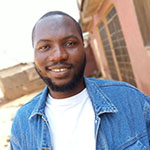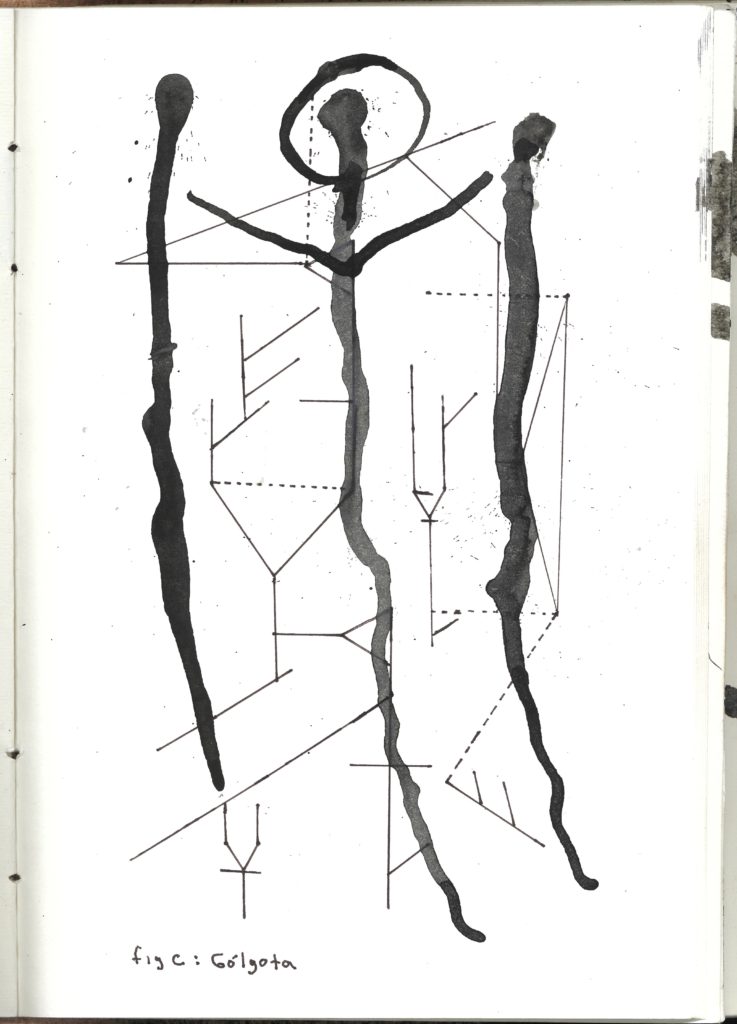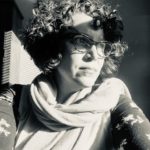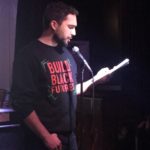black out
1.
Not for the first time, limbs loosen into slingshot. Meaning blurs becomes reckless hum disguised as courage. Too much champagne sparkle, glitterglitzed like jeweled bits of a bottle broken last night while dancing, spilled in the afternoon. Later, I trace the dirt abacus + a boy unstitches the drunk regret buried in my spine. I mimic the pastoral aubade, sob for morning’s sharp sudden light. I am nothing but animal sounds, desperate whetstone scrape + joltblue praisesong. Birdchild crumpled in the grass. Body an archive for the small broken + alive. Soft touch becomes electric when boozebleared, like a dark bedroom bled of lust. A mouse scurries across the floor, finds refuge in the trampling feet of dancing boys, who still each other’s quaking with touch, nostalgic for the next moment alive. In a small house, I cannot feel anything, like my spine’s become a snake’s coil, like my wretched mouth has finally emptied of words.
2.
Not for the first time, limbs loosen into slingshot. Meaning blurs becomes reckless hum disguised as courage. Too much champagne sparkle, glitter-glitzed like jeweled bits of a bottle broken last night while dancing, spilled in the afternoon. Later, I trace the dirt abacus + a boy unstitches the drunk regret buried in my spine. I mimic the pastoral aubade, sob for morning’s sharp sudden light. I am nothing but animal sounds, desperate whetstone scrape + joltblue praisesong. Bird-child crumpled in the grass. Body an archive for the small broken + alive. Soft touch becomes electric when booze-bleared, like a dark bedroom bled of lust. A mouse scurries across the floor, finds refuge in the trampling feet of dancing boys, who still each other’s quaking with touch, nostalgic for the next moment alive. In a small house, I cannot feel anything, like my spine’s become a snake’s coil, like my wretched mouth has finally emptied of words.
3.
Not for the first time, limbs loosen into slingshot. Meaning blurs becomes reckless hum disguised as courage. Too much champagne sparkle, glitter-glitzed like jeweled bits of a bottle broken last night while dancing, spilled in the afternoon. Later, I trace the dirt abacus + a boy unstitches the drunk regret buried in my spine. I mimic the pastoral aubade, sob for morning’s sharp sudden light. I am nothing but animal sounds, desperate whetstone scrape + joltblue praisesong. Bird-child crumpled in the grass. Body an archive for the small broken + alive. Soft touch becomes electric when booze-bleared, like a dark bedroom bled of lust. A mouse scurries across the floor, finds refuge in the trampling feet of dancing boys, who still each other’s quaking with touch, nostalgic for the next moment alive. In a small house, I cannot feel anything, like my spine’s become a snake’s coil, like my wretched mouth has finally emptied of words.
aubade in omelas
a bee lands on the windowsill,
lazy stumbles into the bedroom where we sleep.
i allow the bee to land on my nose
as if i have never heard of stingers.
i flip over, grasp the cell phone resting
on the desk with someone else’s
severed hand. my mouth slobbers honey & you
wake with a throat swarming
with wasps.
it is possible, yes, the minerals in the cell phone
were harvested from a starved earth
by hands scarred by conflict.
& yet when i wake to tweet
a photo of a dog dressed as a lobster,
i do not think about this.
every day you mourn
tame as a forgotten anarchy
the sin gargled tequila-pungent.
it is possible, yes,
every joy is honey & blood.
i pick up the phone, thumbs-up
a meme. laugh react without laughing.
& a mother collapses at the border of town, her child
plucked from her hands.
the child, in a basement,
loses his first tooth.
the dirt will crack & swallow us
but only through small violences,
like slapping a mosquito mid-bloodsnack
leaving behind the messy remnant smear on your bare thigh.
what an inconvenience to consider its minor life,
to scrape its guts from skin, to return
to mundanity & forget.
i trace the warmth of you,
happy to live here, here
where honey is abundant.
this is a hard grace,
how we forget so easily the origin of salt in the human body,
how the sun rises quick & brings with it a red, red sky,
the horizon splitting open gorgeous like a knifed neck.
grief habit
there’s a brief barter with each bottle,
a simple equation tilting toward vice.
choose joy, the unwarm neck
begging for a mouth. choose
tonight, tomorrow a slot machine promising
only uncertainty. it is good to feel good,
indulge in a moment’s mercurial luminescence.
even the cancer ward does not ruin
your taste for cigarettes.
even your father’s surgery does not discourage
your sugar feast.
as your body pulses in revolt, you push
another pill past cobblestone teeth.
at your aunt’s funeral, her mother
buries the body in the backyard.
her brother-in-law has crafted
the casket himself.
red faces hover, a grief mob
carrying torches wicked with whiskey.
the drink killed her, they whisper,
this woman who bloomed alive
when blood-monstered,
wedding dance dust storm,
loud-laughed patron saint of pleasure.
graveside, you teeter
tipsy.
flask holstered to hip.
wear a habit. pray
to what cannot save you.
learn first booze-loosed lucidity.
here, see clearly how joy
frays, how an overflowing cup can drown.
behind the barn, choose yourself again.
let the gutwarm lick your brainstem.
call this self care, how you barter
for another moment underwater, then
join the mourners.
take turns tossing handfuls of dirt.

Derek Berry is the author of the novel “Heathens & Liars of Lickskillet County” & the forthcoming poetry chapbook “Glitter Husk.” They are the recipient of the Emrys Poetry Prize & Broad River Prize for Prose, among other honors. Their recent work has appeared in Yemassee, Beloit Poetry Journal, Raleigh Review, Gigantic Sequins, Taco Bell Quarterly, & elsewhere. They live in Aiken, South Carolina, where they teach creative writing to children & work in Cold War historic archives. Their work can be found at derekberrywriter.com

 BACK TO ISSUE
BACK TO ISSUE








